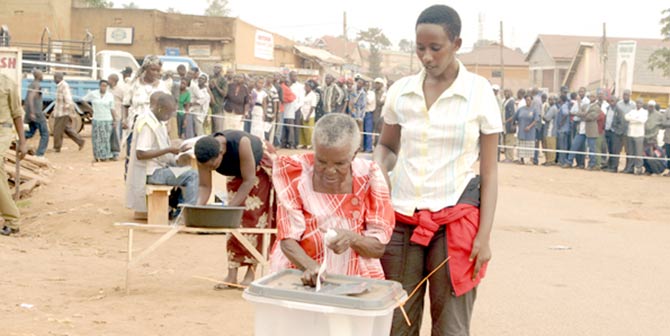LSE’s Kelly Quinn reviews the recent Steve Biko Memorial Lecture delivered by Professor Barney Nyameko Pityana. This article originally appeared in the 16/10/2012 edition of The Beaver.
Nearly twenty years after the African National Congress (ANC) ousted the pro-segregation National Party in South Africa, the nation is still trying to forge its post-apartheid identity. This was the subject of the speech delivered Tuesday by Dr Barney Pityana, lawyer, theologian and founder of the Black Consciousness Movement, in the Sheikh Zayed Theatre.
The speech was part of a series of Steve Biko Memorial Lectures aimed at promoting discussion on the important issues of today through the lens of the Black Consciousness Movement.
Titled “Black Consciousness, Black Theology, Student Activism and the Shaping of the New South Africa,” Pityana’s address focused on the roots of the anti-apartheid Black Consciousness Movement, and their implications for South Africa today. “Being a Kings man and appearing on an LSE platform is an act of betrayal,” joked Pityana, a former KCL student, before diving into the topic.
The event was held in honour of Steve Biko, a leader of the early freedom movement who galvanised South Africans to begin protesting the atrocities of the time. Since his murder by the police at the age of 31 in 1977, Biko has remained a symbol of political activism in the region.
“Again and again out people lost, but they never surrendered their right to self-determination,” Pityana said, lauding the revolutionary spirit of Biko and his contemporaries. Despite the forces of oppression working against them, the disenfranchised South Africans, particularly the youth, as a whole recognised the importance of education.
“We instinctively understood that a one-dimensional view of the world must be challenged,” Pityana remarked. Hegelian philosophy, the American Civil Rights Movement, and European student protests of the 1960s all gave “credence to the spirit of our resistance,” he added.
This “liberatory” spirit, however, seems to have waned in recent years. Criticising the current state of South African politics, Pityana noted that today’s youth have been “silenced and marginalised” by the majority ANC party.
These echoes of darker times in South African history, Pityana argued, have made it all the more necessary for students to get involved in their communities. Rather than concern themselves with “instant riches” and the “toxic atmosphere that undermines their voices,” the youth must constantly fight to change the status quo, he said.
“In South Africa at the present, it is fair to suggest that we are in danger of growing a generation of young people without hope of a better future,” he warned.
At the close of the lecture, Nkosinathi Biko, son of Steve Biko and CEO of the Steve Biko Foundation, presented Dr. Pityana with a portrait, as is customary of the Memorial Lectures.
Regarding the speech, Masana Mulaudzi, University of Cape Town alumna and LSE MSc Political Economy of Late Development student said: “I found it interesting that there was a theoretical background to black consciousness, which is something that has really been missing from the literature.”
Mulaudzi also wondered what policies could be put in place to inspire not only black consciousness, but also political activism. “There is a focus on development of South Africa, on the material,” she said, “lawmakers, however, are not actually paying attention to the ideological and moral compass that guides society.”
Meanwhile, Sachiyo Yasunaga, an MSc Human Rights student, was particularly struck by the notion that “students in South Africa should have aspirations to seek a better society because students in [Pityana’s] time and students now belong to different present and futures.”






